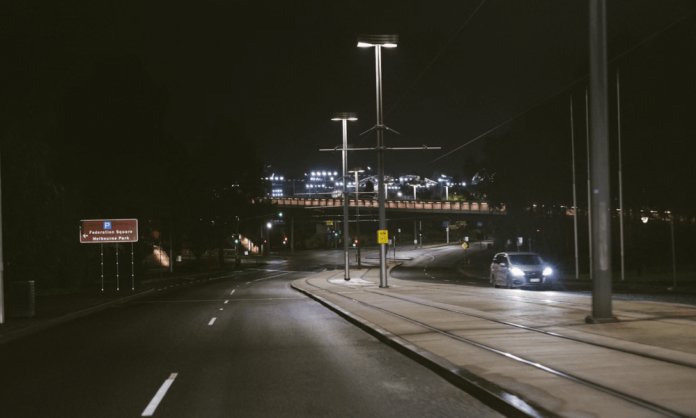I opened before dawn and locked up after dark, smiled through double shifts, and memorized orders like hymns. Ham and eggs for Mr. Keating with extra hot sauce. Patty melt on rye for the carpenter who always brought sawdust to the counter. Black coffee for the early-shift nurse who stared into the steam as if it might answer her. The regulars were a clock I could set my life to: dependable, familiar, and carefully uninterested in anything that wasn’t right in front of them.
Nobody knew about the narrow room I rented over the auto garage where the floor creaked like a ship and an outlet sparked if you looked at it wrong. Nobody knew about Smokey, my one-eyed tabby with a fighter’s heart and a purr that could soften a bad day. Nobody knew the balance in my bank account—sixty-four dollars and thirty-eight cents the morning everything changed—or that my roommate had bolted, leaving me with her half of the rent and a landlord who pronounced “late fee” like he was flicking ash off a cigar. And nobody knew about the shoebox under my bed that held my grandfather’s war medals: tinny proof that courage can be worn smooth by years and still shine.
Grandpa Henry raised me after my parents folded into the storm of their own undoing. He was a Korean War veteran with a crooked back, a quick wit, and a kitchen full of rules: sweep the porch before the guests arrive even if they never do, starch your dignity on the clothesline, and never mistake loud for honorable. “Honor isn’t a trumpet, Clara,” he’d say around his pipe. “It’s the quiet that stays when nobody’s looking.” He’d been gone three years. I still set out a second coffee mug some mornings and felt foolish when I put it back.

That Tuesday, the rain came sideways like it had been studying maps and decided every cross street in Ridgefield needed a river. It needled through jackets and crawled into bones. By five-thirty a.m., the bell over Billy’s door had already stuck twice, squealing on each open as if surprised anyone wanted to come in out of that weather. Two linemen sat near the window watching the storm make plans. A trucker from Ohio leaned over a plate he hadn’t yet tasted. The diner breathed in steam and oldies radio and the smell of bacon starting its shift.
Wayne Becker—owner, boss, man who loved laminated rules as much as he loved telling you about them—was in the back lecturing the cook about an overdone steak, which we didn’t even serve at breakfast. “Standards!” he boomed. The cook turned the radio up one click and frowned at his griddle like it had disappointed him personally.
The door opened, coughed in a gust of cold, and then he was standing there like the rain had carved him out of itself.
He wore a battered, army-green coat that had lost its right to be called waterproof sometime last decade. A patch clung to the sleeve with the last of its thread. His beard was gray, his face the color of a road after a long winter, and his eyes—Lord—his eyes were caught between pride and a fear that had learned how to be quiet. His left leg was wrapped with gauze that had been clean once. He stepped in like he was asking the floor for permission to hold him.
The regulars looked away the way people do when they think kindness is an invitation they’re not prepared to accept.
He drifted to the back booth and rested a shaking palm on the vinyl like you might steady yourself on a church pew before a prayer. He didn’t sit. He waited, as if a seat was a favor I could grant or withhold.
I tucked my towel into my apron and walked over. “Evening,” I said, though morning still had the room by the shoulders. “Can I get you something warm?”
He kept his gaze on the floor until he’d balanced whatever was inside him enough to risk looking up. When he did, I saw how much asking cost him. “If it’s not too much trouble,” he said, the words careful, like steps on a slick sidewalk, “just a cup of hot water, ma’am. And maybe… if there’s a piece of bread that’s headed for the trash.”
Grandpa Henry’s voice came back in a rush, the way a remembered hymn can crack your chest open: A crust of bread saved me one night in Busan, 1952. “I was hungrier than a hollow drum,” he’d say, “and a stranger made sure I didn’t starve. That’s the sort of grace that doesn’t brag.”
My throat tightened. “Give me a minute,” I said.
Under the heat lamp waited a returned plate of chicken and dumplings, steam still lifting like a blessing. The woman who’d ordered it had stormed out mid-phone call, leaving the plate to cool and the check unpaid. Kitchen policy: dump it. My hands moved before my good sense could catch them. I slid the food onto a clean plate, added a heel of buttered bread from the staff stash, poured a mug of coffee black as any night, and set the tray on my palm like a promise.
“This was sent back,” I told him softly when I set it down. “Still hot.” He shook his head before I’d finished speaking.
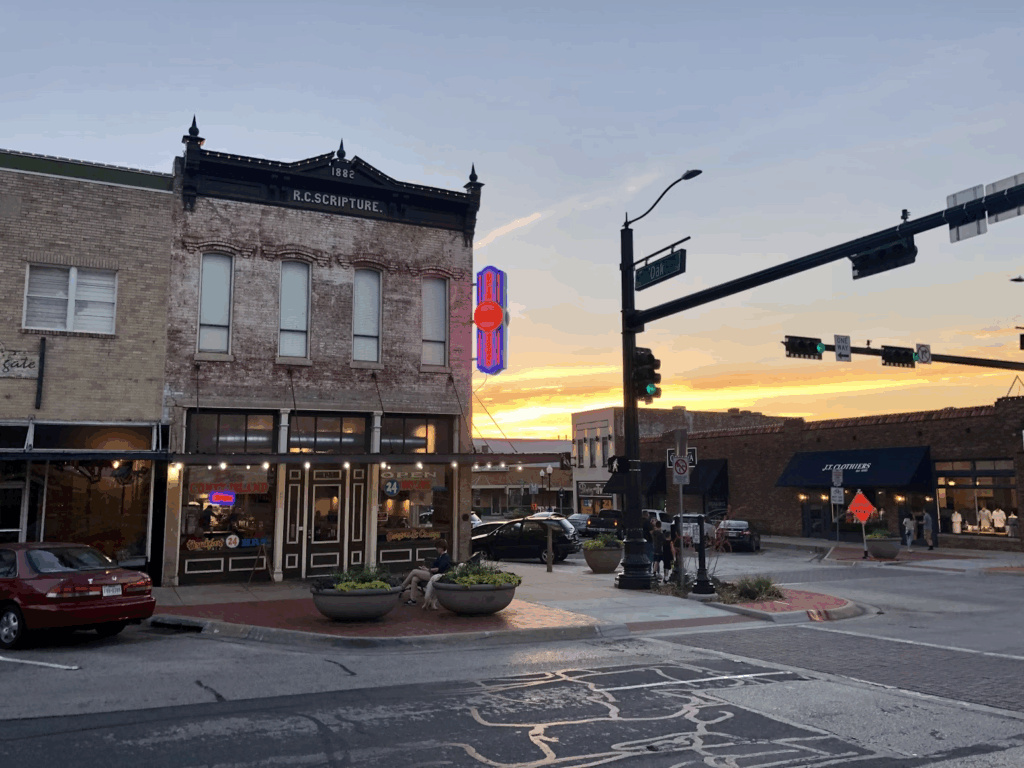
“I can’t pay,” he said, a whisper laid on worn-out pride. “I won’t cause trouble.”
“It’s already paid for,” I lied kindly. “Coffee’s on me.”
He wrapped his fingers around the mug like it was the first warm thing to happen to him in a long time and bowed his head. For a second, it looked like he might stand and leave anyway. Then he took a careful bite, as if thanking each muscle for remembering how to chew. “You remind me of my wife,” he murmured without looking up. “She believed warmth was a right, not a reward.”
“Eat while it’s hot,” I said.
I was at the counter wiping a circle that had already been wiped twice when the back-door crash announced Wayne’s approach: the heavy authority of a man who believes volume can be equated with leadership. He slid to a stop, saw the man at the booth, and his face went the color of a stop sign.
“What are you doing?” The disgust wasn’t a question. It was an accusation. You could feel the room hunch.
“He asked for hot water,” I said. “The plate was going to be thrown out.”
“I told you,” he snapped, jabbing a finger at me like I’d stolen a family heirloom, “we don’t serve beggars. This isn’t a charity.” He cut a glare at the old man. “You can’t sit here.”
“He’s a veteran,” I said, and I hated the way my voice shook because it sounded like apology when I meant backbone. “He just wanted—”
“I don’t care what costume he’s wearing,” Wayne barked. “He’s street trash. You want people thinking we give away plates? You’ll bring them in like raccoons.”
“I’ll pay for the food,” I said quickly. “Take it out of my tips. And the coffee.”
You’d have thought I’d called his mother a liar. He shouldered by me, planted his hand on the plate, and in one ugly motion threw it to the floor.
Ceramic broke like a scream. Gravy and dough and shame ran across tile. The old man flinched the way you flinch when your body has learned to expect bad things on a loop. He raised an arm to protect his face and apologized to nobody in particular for being in the way.
The diner went silent except for the rain pounding on the windows like a jury with a verdict. The regulars stared harder at their sugar packets.
“You’re fired,” Wayne said to me in a voice that wanted to be cold and landed on petty. “Pack your things. Get out.”
I thought about Grandpa Henry, about honor quieter than thunder. I took off my apron, folded it in half, then half again, set it on the counter, and turned toward the door. My hands shook, but my step didn’t. I didn’t even notice I’d slipped the old man’s rusted dog tag into my apron pocket when he’d pressed it toward me with a muttered, “So someone knows I existed.”
Outside, the rain finished what Wayne had started. It washed the warmth off me and replaced it with a chill that went deep enough to make a home. I walked the ten blocks to my room, shoes squishing, bank balance whispering bad math, Smokey twining around my ankles as if he could purr the day back together. I sat on the edge of the bed too wired to cry and stared at the dog tag in my palm. ELI TURNER. The numbers below his name felt like coordinates to a place where I wasn’t welcome.
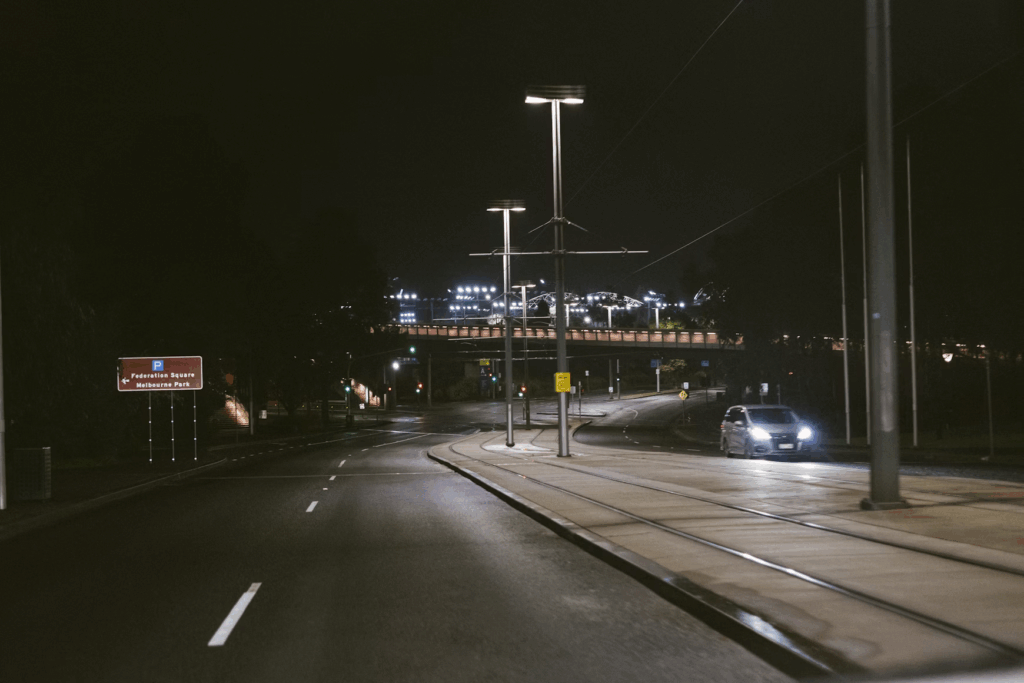
The video showed up the next morning like a rumor with perfect teeth. Some kid in a booth had filmed everything in jittery portrait mode: my hand placing the plate, Wayne’s jaw tightening, the plate’s arc to the floor, the old man’s flinch, the moment you could hear in your bones that something had gone wrong. It racked up views faster than rain can find a leak.
So did the comments.
Rules are rules.
Private property.
She should have asked.
Owner can do what he wants.
People take advantage.
He looks like trouble.
A few folks tried kindness on: “She was just being human.” They were outshouted by people who knew how to type louder. Shame settles into your pockets one pebble at a time. By lunchtime, my phone had lost thirty contacts. A co-worker sent a message that read like a sticky note: Always trying to be a hero. How’d that work out? I deleted it and immediately wished I hadn’t so I could delete it again.
I spent the next two days making the rounds with my humble application and hopeful smile. Two diners said no by pretending the “Help Wanted” sign meant something else. One manager said, “Not after that circus,” and slid my resume back across the counter like I’d placed a wet rag on his menu. I bought kibble for Smokey, counted what was left, and pressed my forehead to the cool refrigerator door to give the universe a chance to drop a plan through the ceiling.
At dusk, Market Street reflected the sky like a bruise and the bus shelter held a shape I knew even from behind. Eli slept on the steel bench like his bones had made a deal with discomfort long ago. The plastic sheet half-covering him flapped. I didn’t think. I knelt.
He woke with a start and an apology.
“It’s just me,” I said. “Clara from the diner.”
He relaxed like a person who has learned relaxation is sometimes safe. I handed him the half-sandwich that was supposed to be my dinner and tucked a napkin under it like presentation could add calories.
“You don’t have to do that,” he murmured.
“Everyone deserves warmth,” I said, returning his own line like a handshake.
I didn’t see the black SUV idling at the curb. I didn’t see the man inside lower his window and watch long enough to make a call he’d been waiting to make for years. All I saw was a man and a sandwich and the way gratitude looks when it’s embarrassed to be seen.
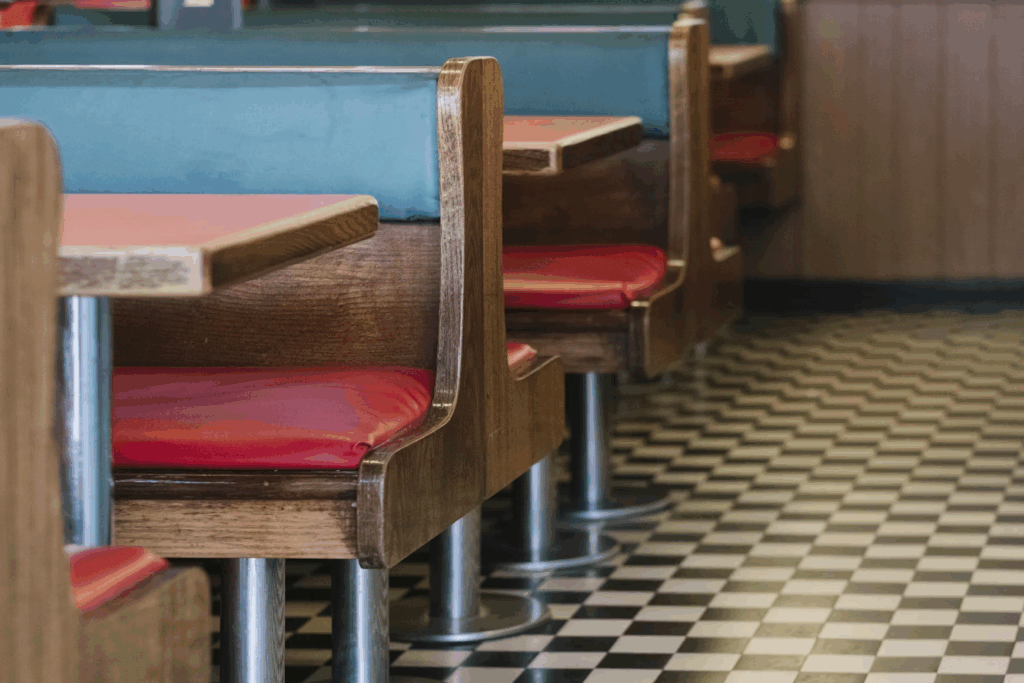
I woke to pounding that wasn’t rent due. It was brisk, official, and timed like a drumline.
“Ms. James?” A woman’s voice. “Clara James?”
I opened the door to a local reporter I’d only ever seen on TV when the mayor cut ribbons. Her cheeks were bright with weather and adrenaline. A cameraman hovered behind her with a smile that meant breaking news.
“They’re asking for you at Billy’s,” she said without preface.
“Who is?” I glanced at my clock, at my bank app, at Smokey, who was unimpressed.
“The soldiers.”
I thought I’d misheard. The soldiers? In Ridgefield, we had more deer than uniforms. “Why?”
“Because of yesterday,” she said, breath fogging. “You should see it.”
We jogged two blocks, turned the corner, and the sound that hit me first was the absence of sound. Main Street, usually a mess of diesel chatter and neighborly complaint, was quiet as a church one hour after the service had ended.
Then I saw them.
In front of Billy’s Diner, shoulder to shoulder and standing the way discipline stands, were uniforms in rows neat enough to make a ruler jealous. Army greens. Navy blues. Marine dress. Air Force impeccable. Men and women, young and not, every chest a story pinned in metal. There weren’t five or ten. There were hundreds. They stretched down the block and folded around the corner like the world had sent Ridgefield a spine.
They stood in silence. Not protest silence. Not threatening silence. The kind of silence that tells you words would only cheapen what it’s trying to say.
The reporter touched my elbow. “Go on.”
When I stepped forward, the line split clean down the middle to make a path I didn’t feel worthy to walk. I tried to become smaller. The uniforms refused to let me be.
Halfway to the door, the line moved in a single breath: two hundred hands lifted in a salute that found me and held. It is a hard thing to explain what that felt like without sounding like a cliché. I had been invisible professionally. I had built a life on it. In that moment, I was seen so fiercely I almost stepped back from it. I put my palm to my mouth because I didn’t trust my face not to fall apart.
A man in a sharply pressed Army uniform walked out of the first row. His hair was regulation, his shoes had lost every scuff to polish, and his body carried itself like it trusted the ground. He stopped in front of me and spoke in a voice that had been trained never to shake.
“Ms. Clara James?”
“Yes,” I said, which came out as something closer to a gust of air.
“I’m Colonel Matthew Turner.” He pointed with his chin toward the black SUV idling near the curb, and my heart startled into a sprint. In the passenger seat, cleaned up and listening hard, sat Eli. “My father is Eli Turner.”
The world pin-wheeled into a place where the dog tag in my pocket felt suddenly heavier. “Is he—”
“He is safe,” the Colonel said. His eyes softened for the first time. “Because of you.”
He didn’t salute me. He pivoted toward the diner and stepped inside. The room smelled like bacon and fear. Wayne stood behind the counter with his hands gripping the laminate so tightly his knuckles had turned a color I’d never seen on a person before.

“I’m the owner,” Wayne managed, pasty and loud. “What’s this? I don’t—”
“Colonel,” the man corrected without raising his voice. Nothing in the room failed to hear him. “You humiliated my father yesterday and threw him out when he asked for hot water.”
“I didn’t know he was your—” Wayne started.
“You didn’t know he was a human being,” the Colonel said, and the way he said it settled a quiet across the room that wasn’t negotiable.
He took a laminated document from his breast pocket. “In 2007, near Baqubah, Iraq, my convoy was ambushed. Twelve of us were trapped, wounded, under fire for hours. My father carried me more than three miles with shrapnel in his leg, refused treatment until every soldier in our group had been accounted for and evacuated. That heroism earned him this.” He held the document like a photograph. “The Silver Star.”
Wayne blinked as if he’d been staring at the sun.
“After my mother died,” the Colonel continued, “my father struggled. He disappeared from the life that needed him because the life inside him hurt to live. We’ve been searching for him for months. Yesterday, because one waitress did what decent people do, we found him. We found him alive. We found him eating because a stranger decided warmth wasn’t negotiable.”
The Colonel turned and faced me fully. Every chest outside squared with him. He cupped a small, velvet box in his palm and opened it. Inside, a star shone like it had been waiting to be reintroduced to the world.
“He pawned it years ago to feed another family,” the Colonel said. “We got it back.” He glanced at his father in the SUV, at the dog tag I hadn’t realized I was holding like a talisman. “He wants you to have it.”
“No,” I said, shaking my head, tears finally taking charge of my face. “That’s his. That belongs on his story.”
“And it will always be,” the Colonel said gently. “What you gave him yesterday wasn’t a plate. It was the right to be seen. He says that’s worth a medal. My units agree.”
He closed my fingers over the box with a careful pressure that felt less like a gift and more like a vow passing hands. Behind him, across the glass, I saw movement: Eli, hand to his heart, eyes wet and proud and small and enormous all at once.
Outside, the line of uniforms held their silence like a flag. Inside, the cook took off his apron and set it on the flat top as if a day’s work had ended mid-morning. Wayne blinked hard, then blinked again, like he could edit what had already been written on the day.
The internet did what it does when it decides to be kindness for a change. The clip of two hundred salutes and a waitress whose hands weren’t steady traveled faster than gossip at a family reunion. News vans found Ridgefield’s Main Street and tried to make the quiet part of the story louder than the quiet wanted to be. By sundown, suppliers had canceled orders, the night shift had quit, and Billy’s Diner—famous for nothing—had earned a reputation nobody wanted to dine with. A week later, the windows were papered over and my old apron hung on a hook in the back like the last line of a chapter.
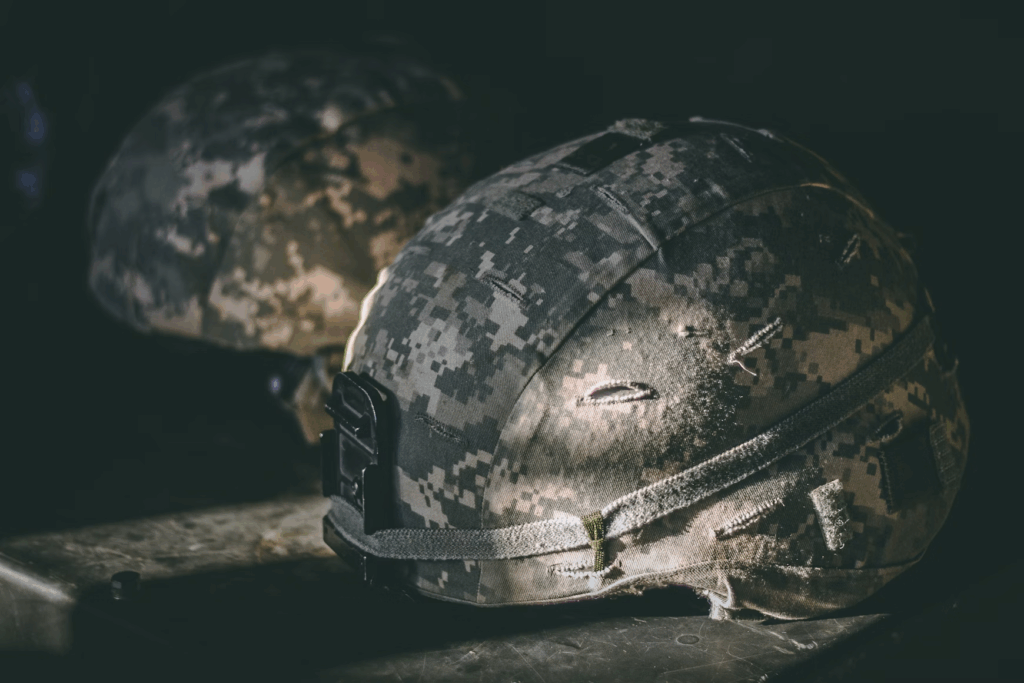
A veteran-founded nonprofit out of Lexington called two days after the salute. “Saw what you did,” the woman on the line said. “We just signed a lease on an old feed-store warehouse in Ridgefield and want to turn it into a community kitchen. Salary’s modest, hours are long, work is messy. Interested?”
I looked at Smokey asleep in the slice of sunlight on the floor, at the medals in the shoebox, at the dog tag that had taken up residence on my nightstand. “Interested,” I said, and meant it from the bottom of the part of me that had been tired for years.
We scrubbed a decade of dust off the warehouse and painted the cinderblock walls the color of a morning you’re glad to wake up to. A retired electrician rewired the place in exchange for the promise that his grandson could learn to cook. A farmer donated a walk-in cooler with a door that closed like a handshake. Someone shipped a commercial stove that had outlived three restaurants and still lit on the first try. Word travels fast in towns like ours when it’s carrying something worth hearing.
We named it Ridgefield Community Kitchen because sometimes you don’t need metaphors; you need meals. We opened with chili that made the air taste like safety, cornbread that broke in your hand the way good cornbread should, and coffee that never ran out. People came. Not as clients, not as problems. They came as neighbors with names.
Veterans peeled potatoes next to single moms who’d never held a knife that size. A mechanic ladled soup like he’d been doing it all his life. A teenager on probation learned that chopping onions can be a meditation if you let it. We built a table wide enough to tell truths at.
Eli moved into a VA-affiliated housing unit thirty minutes away where the staff knew how to say “good morning” in a dozen different ways and meant it every time. The gauze on his leg became a clean bandage became a scar that didn’t own him. He came by the kitchen twice a week to sit under the big window with his coffee and look like someone who’d found a corner of the world that wasn’t trying to take anything from him.
His son—Colonel Turner when he was in uniform, Matt when he stopped by in jeans on weekends—sat with him and listened the way sons do when the world reminds them in a public way how lucky they are to still have a father to argue about politics with. Sometimes young soldiers came too and let Eli talk about the kind of fear you survive by naming and the kind of courage you don’t put on social media.
I kept the Silver Star on my office shelf for the first week because I didn’t know what else to do with something that felt like it had weight even when it wasn’t in my hand. On Friday, I moved it into the dining room and set it in a plain wooden shadow box next to Grandpa Henry’s medals. People didn’t gawk. They nodded at it when they walked by like you’d nod at a neighbor’s porch light shining you home.
Ridgefield changed the way small towns change: not all at once, not without arguments, and not without a few people deciding to be mad at the wrong things. But something shifted. A bar down the street started letting folks run tabs they knew would get paid in hours instead of days. The church that had been arguing about carpet color for eight months wrapped the pews in moving blankets and turned their fellowship hall into a winter dayroom. The library dragged out every book it had about resumes and made a corner where people who had forgotten how to hope could sit with someone who hadn’t.
People say “viral” like it’s a storm. The day of the salute, a calm settled over us instead. Courage doesn’t always swing a light. Sometimes it is a hundred small decisions you make between breakfast and lunch.
A boy came in one afternoon with a crumpled dollar and a cookie his grandmother had wrapped in wax paper. He stood straight like the room had called his name. “I saw you in the video,” he said. “My grandpa was a soldier. He says we help. Can I buy somebody a cookie?”
“Yes,” I managed. I didn’t take the dollar. I showed him how to put it in the jar labeled FOR THE NEXT PERSON’S DESSERT and wrote his name in a notebook that meant more to me than any ledger I’d ever balanced. He handed the cookie to a man who had never been handed anything but trouble and the man said thank you like the word had been waiting in him for too long.

People still ask me about Wayne. Where did he go? Did he apologize? Did he learn anything? I don’t know. I don’t spend much time rolling in stories that don’t feed anyone. Billy’s Diner sits dark. A FOR LEASE sign gathers sunlight. The sign above the door still says BILLY’S DINER in hand-painted letters faded to the color of old paper, and every time I walk past, I think about how buildings remember what we do in them. I don’t despise the place. That floor held me up for six years. That counter taught me how to listen without taking in a stranger’s whole weather system. That room gave me the stage I didn’t know I’d step onto.
Do people come by and call me a hero? Sometimes. I have learned to say thank you and then hand them a cutting board and a carrot because work is better than attention for both the giver and the receiver. Do people cry in the line? Yes. Do we have tissues? Also yes. Will the electric bill always be a little scary? Probably. Do we pay it? We do, because someone who had a rough week drops a twenty in the donation box like a prayer on a folded paper and a former quarterback who works night shift at the distribution center shows up with an envelope and says, “Don’t put my name on it; put it to use.”
I keep Eli’s dog tag where I can reach it when a day puddles under my feet. It’s a simple thing: stamped letters, worn edges, numbers that mean something specific to the Army and something holy to me. If fidelity had a shape, it would look like that: weathered, unshowy, endlessly readable.
Sometimes I sit with Eli and we share a silence that tastes like understanding. He tells me his wife used to sew quilts out of shirts folks thought they were done with, and how much warmer it felt to sleep under something pieced together from old stories. He tells me some nights are still long. I tell him I know all about those. Then we eat chili with too much cumin because the volunteer who made it got enthusiastic, and we decide the cumin tastes like a hot afternoon near a border we’ve both only seen in photographs.
There’s a kind of gratitude that’s loud and a kind that’s deep. The loud kind dances through your house with balloons. The deep kind refills a salt shaker and wipes a table and locks up, then turns to the empty room and says, “Thank you for holding us again today.” I prefer deep. The loud kind is fine for birthdays. The deep kind is how you survive the rest of the calendar.
On some evenings, when the light hits the kitchen window like the last note of a hymn, I see Colonel Turner walking his father to the SUV with a hand on his elbow, not as a guide but as an anchor. I see the kid who donated a dollar come in with two cookies, one for himself and one for the next person, learning that generosity doubles when you carry it in both hands. I see the former line cook from Billy’s teach a teenager how to make gravy without lumps and without swearing. I see the town I thought had forgotten how to look up from its own shoes take a breath in unison and look each other in the eye.
If you came by, you’d see a plain room with tables that don’t match and chairs that wobble a little, a menu written in dry-erase marker, and a jar where people drop coins like blessings. You’d smell soup that brings a person back to themselves. You’d hear laughter that didn’t think it was going to show up today and did anyway. You’d watch a woman who thought she was invisible become impossible to ignore, not because she went looking for a stage, but because a stage found her doing something kind.
I’m not a hero. I put food on plates and water in cups and names in my memory. I do what Grandpa Henry taught me: sweep the porch even if you don’t know whether guests are coming. Yesterday, two hundred guests came to a sidewalk in front of a diner and stood very still to say a thing that couldn’t be said any other way. Today, one boy put a dollar in a jar and bought a stranger dessert. Tomorrow, we’ll open the doors again and go looking for the next quiet chance to do honor without making it a parade.
I keep the Silver Star in its wooden box on a shelf that squeaks when I dust it. Some afternoons, sunlight finds it and sets it sparkling like a dare. It belongs to a man who carried his son and a handful of soldiers across a nightmare. The fact that it sits in my kitchen between a jar of sugar and a stack of napkins tells me the truth I didn’t know I needed this many years into being a person: you don’t have to be loud to be brave, and you don’t have to be rich to be generous, and if you put a plate in front of somebody who needs it, sometimes an army will show up to make sure you never doubt that you did the right thing.
- He Told A Lost Boy, “I Can’t Read.” What He Found In A Rotten Attic Exposed A Secret That Could Topple A City
- My Husband Left Me For My Sister And Got Her Pregnant — On Their Wedding Day, Karma Finally Found Them
- They Skipped My Children’s Funeral For A Party—Then Learned My $5M Secret The Hard Way
Please let us know your thoughts and SHARE this story with your Friends and Family!

